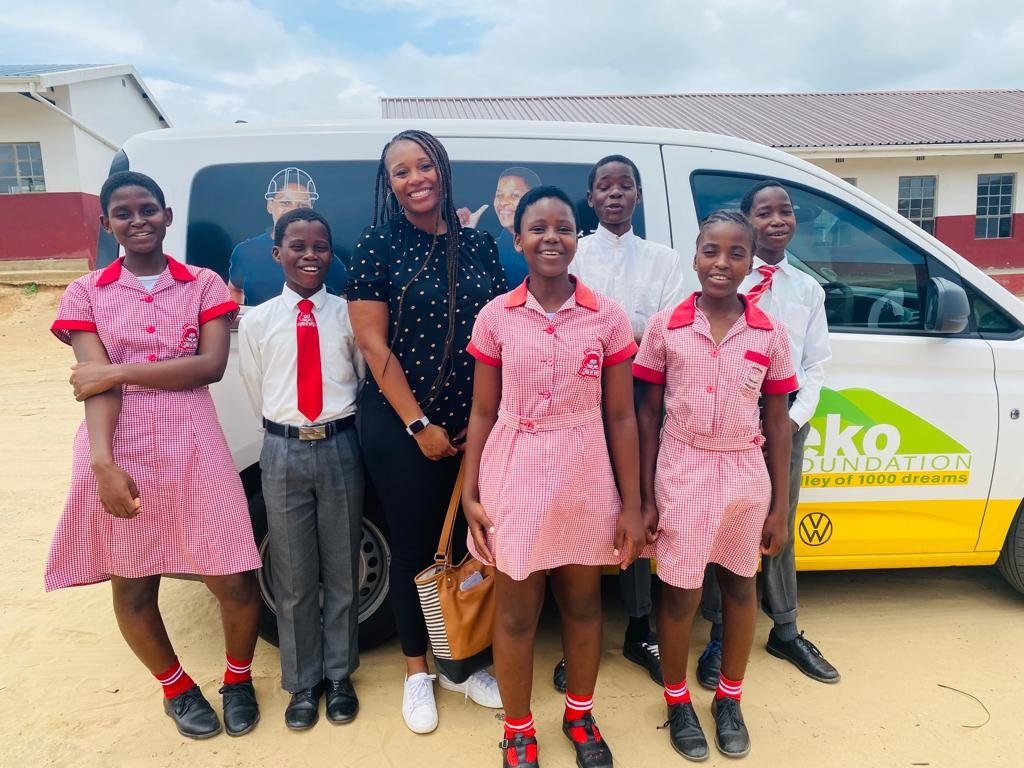Self-Reclamation through Fitness at Imbeleko and iSimangaliso
“Take care of your body. It’s the only place you have to live.”
When most adults think about exercise, they imagine working out in the gym, running on a treadmill, or lifting weights. But for kids, exercise means playing and being physically active. Kids exercise when they have physical education at school, during recess, at dance class or soccer practice, while riding bikes, or when playing tag.
According to the CDC, regular physical activity can help children and adolescents improve cardiorespiratory fitness, build strong bones and muscles, control weight, reduce symptoms of anxiety and depression, and reduce the risk of developing health conditions. Plus, exercise has the ability to release “happy hormones” from our brains, such as dopamine, endorphins, and serotonin.
However, the impact of fitness goes beyond physical health; it can also promote mental, emotional, behavioral and social health. Children who are physically active tend to have better grades, school attendance, cognitive performance (such as concentration, memory), and classroom behaviors. Fit kids sleep better and are also better able to handle emotional challenges.
I had the privilege - really honor - to teach fitness classes to groups of kids at Imbeleko Academy and iSimangaliso. As previously discussed in a blog post, the Imbeleko Foundation, which sponsors the Academy based in a rural community in the Valley of 1000 Hills, provides holistic education support for talented and hardworking children made vulnerable by poverty and scarcity where many are raised by unemployed mothers, siblings or grandparents and not exposed to opportunities that can lift them and their community out of these circumstances. To learn more about Imbeleko Foundation, visit https://www.imbeleko.org/. iSimangaliso is a protected wetland park along the coast of South Africa’s KwaZulu-Natal Province. In addition to protecting the environment and the animals, iSimangaliso also has a community conservation program that involves engaging school-aged children to teach them about the importance of economic, cultural, scientific and recreational resources. To learn more about iSimangaliso, visit https://isimangaliso.com/.
Using a variety of fun age-appropriate movements, I designed these classes keeping in mind the three elements of fitness: (1) endurance: (2) strength; and (3) flexibility. Endurance develops when kids regularly get aerobic activity, allowing large muscles to move, strengthening the heart and improving the body's ability to deliver oxygen to all its cells. Strength activities help tone and strengthen muscles. Stretching exercises help improve flexibility, allowing muscles and joints to bend and move easily through their full range of motion.
An essential element of the classes is music. While the movements are not choreographed to a song, the music serves as the backdrop to set the emotional tone and provide a cadence for the movement to ensure everyone is working out safely. I did online research to understand popular songs in their local area to utilize music that was relevant to them and would spark joy.
“To keep the body in good health is a duty… otherwise we shall not be able to keep our mind strong and clear.”
After the class, I discussed with the kids to get their feedback. This dialogue had two key objectives. First, I wanted to ensure they understood the mind-body connection and realized that while we were working out, they were experiencing a boost in emotional regulation, behavioral health, positive outlook, and calmness. Second, I hoped to encourage them to make being active a part of daily life so they can create habits that allow them to manage tensions or stressors and release them through movement and breath.










